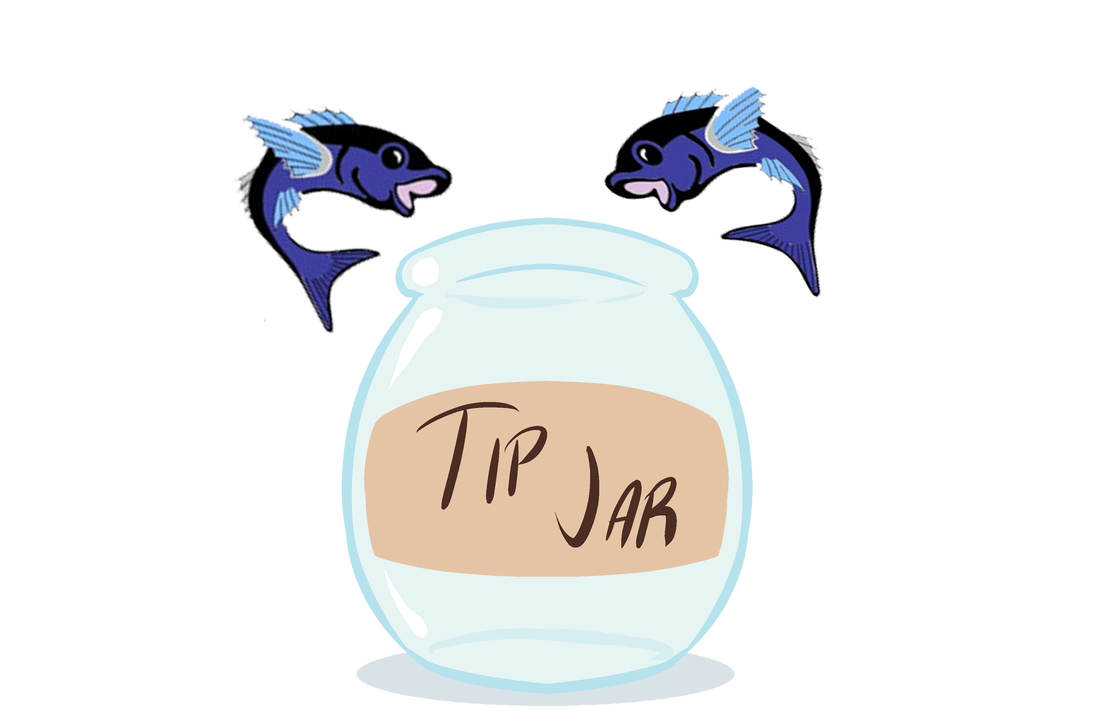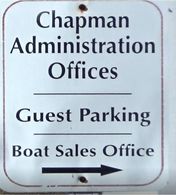
While I was traveling for work in Florida Lisa flew down to see me. We took the time to check out the Chapman School of Seamanship. This school trains students for careers in the maritime industry from being a professional mariner and acquiring ratings up to 100 Ton to conducting marine surveys for a living.
Next year after we retire we will be taking the Professional Mariner Training course along with the Yacht and Small Craft Surveying courses. We aren’t planning on running cruise ships anytime soon or starting our own Surveying business, but we figure the wealth of knowledge we’ll gain by taking both courses should help us immensely while we’re sailing the world. We’ll have some time getting our new boat ready for cruising anyway. We already have a short list of additional upgrades to do after delivery. If we need to do a boat delivery here or there while we’re cruising to make some extra money we’ll be set. Lisa and I can be delivery captains since we’ll both have our USCG Master, 50T Near Coastal licenses and the Auxiliary Sail and Assistance Towing endorsement. If we’re out and about and someone would like us to take a look at a boat we can help them out along the way.
The PMT course will cover Seamanship (Rules of the Road, Weather, Boating Safety, etc.), Navigation, Boat and Engine Maintenance, Marine Radio Operation, STCW95 training, and Vessel Security. We won’t be engineers or professional Navigators by the end of the course. But we should be well versed enough to work through any problem on the boat, or at least not sound like morons when explaining an issue to someone who knows what they’re talking about.
The Yacht and Small Craft Surveying course will reinforce and build on our knowledge of boat design, and construction, and propulsion and support systems. We’ll also cover how to write survey reports and some business considerations for starting a surveying business.
During our tour we spoke with Bruce and Babs, who were a very helpful in explaining the ins and outs of the school and how tuition, and registration would go. Bruce sat down with us for about 30 minutes then gave us a walk around the campus. We got to see the classrooms, housing, maintenance yard, and their simulator. The school seemed like a fantastic place to learn to become a professional mariner. And it’s in Florida so you can’t beat the weather. This is one of the few marine industry schools I have found that accept the Post 9/11 GI Bill. It will be nice to use my benefits to go to school again for something that I will be using after the military.
Next year after we retire we will be taking the Professional Mariner Training course along with the Yacht and Small Craft Surveying courses. We aren’t planning on running cruise ships anytime soon or starting our own Surveying business, but we figure the wealth of knowledge we’ll gain by taking both courses should help us immensely while we’re sailing the world. We’ll have some time getting our new boat ready for cruising anyway. We already have a short list of additional upgrades to do after delivery. If we need to do a boat delivery here or there while we’re cruising to make some extra money we’ll be set. Lisa and I can be delivery captains since we’ll both have our USCG Master, 50T Near Coastal licenses and the Auxiliary Sail and Assistance Towing endorsement. If we’re out and about and someone would like us to take a look at a boat we can help them out along the way.
The PMT course will cover Seamanship (Rules of the Road, Weather, Boating Safety, etc.), Navigation, Boat and Engine Maintenance, Marine Radio Operation, STCW95 training, and Vessel Security. We won’t be engineers or professional Navigators by the end of the course. But we should be well versed enough to work through any problem on the boat, or at least not sound like morons when explaining an issue to someone who knows what they’re talking about.
The Yacht and Small Craft Surveying course will reinforce and build on our knowledge of boat design, and construction, and propulsion and support systems. We’ll also cover how to write survey reports and some business considerations for starting a surveying business.
During our tour we spoke with Bruce and Babs, who were a very helpful in explaining the ins and outs of the school and how tuition, and registration would go. Bruce sat down with us for about 30 minutes then gave us a walk around the campus. We got to see the classrooms, housing, maintenance yard, and their simulator. The school seemed like a fantastic place to learn to become a professional mariner. And it’s in Florida so you can’t beat the weather. This is one of the few marine industry schools I have found that accept the Post 9/11 GI Bill. It will be nice to use my benefits to go to school again for something that I will be using after the military.

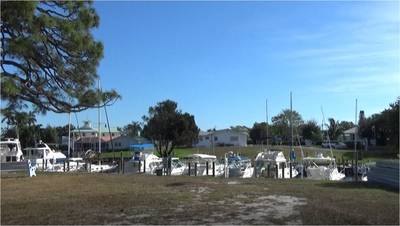
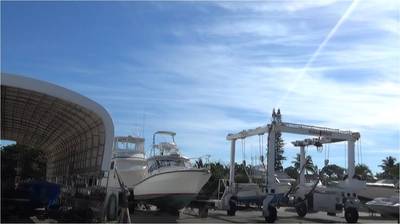
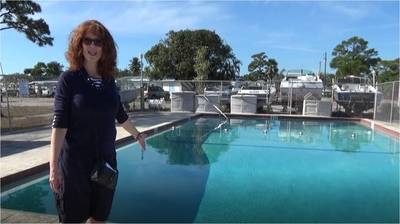
 RSS Feed
RSS Feed
